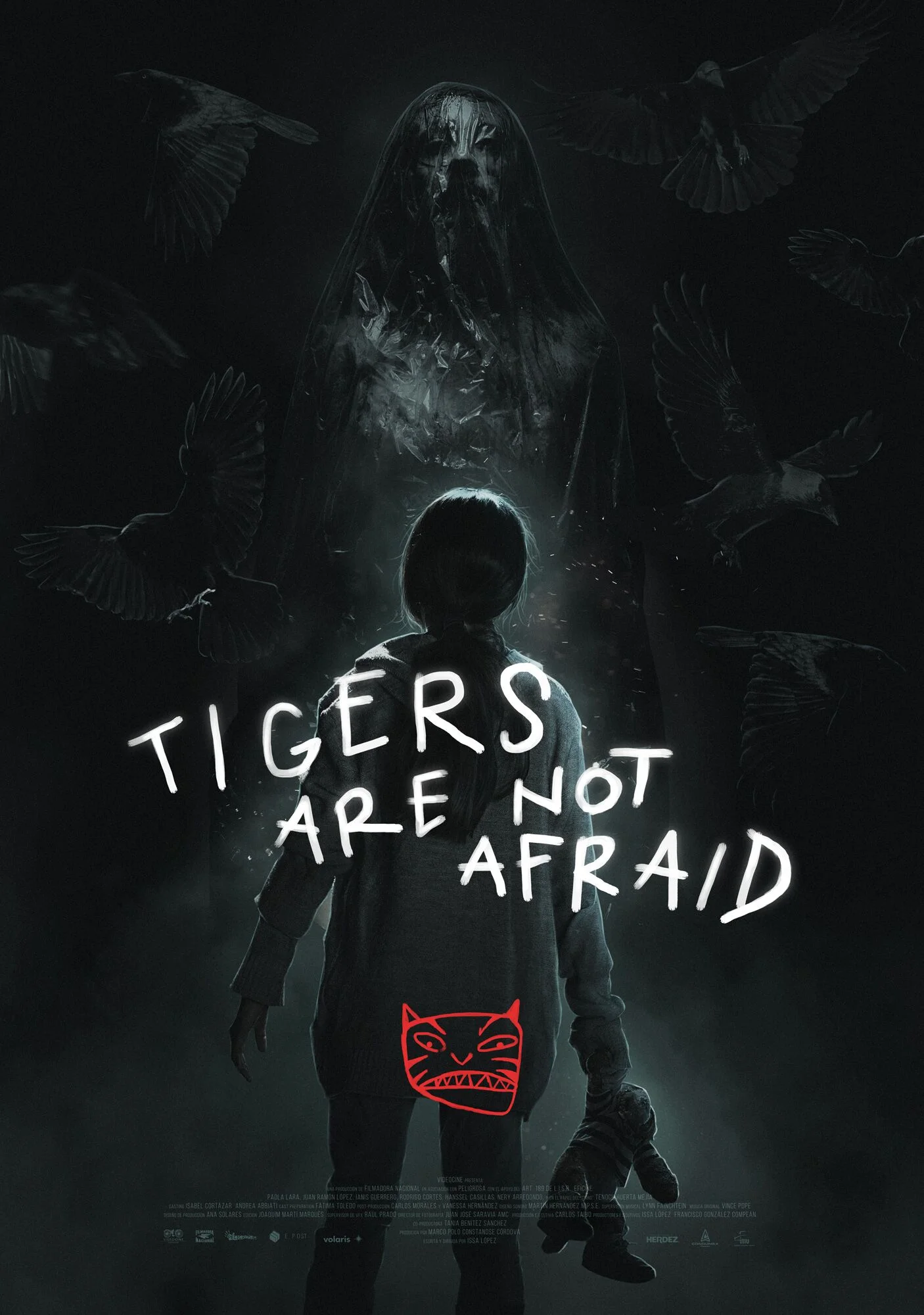[Review] Hagazussa
Sometimes, you have to watch a movie a couple times in order to put into words how you feel about it. When I first watched Hagazussa, I was left feeling perplexed, a little exhausted and on the side of not liking it. But it lingered in the back of my mind for a few days. Partly because I couldn’t figure out how I was going to review the damned thing, but mostly because specific images and the oppressive tone wouldn’t go away. So, I sat down to watch it a second time and I’m glad I did.
In the Austrian alps, circa the 1400s, a young girl named Albrun (Celina Peter) and her mother Martha (Claudia Martini) live a meager existence in the snow-capped forests. On their way home from what seems to be the only time Albrun is ever happy, an old man warns them not to linger. It’s almost night time; the Twelfth Night, in fact. A night when Perchta roams the forest. Perchta, I discovered online, is kind of like Santa…if Santa slit the bellies open of misbehaving kids and stuffed them with straw. So that’s the kind of supernatural folklore and superstition we’re dealing with here. Pleasant stuff.
More unpleasantness comes in a group of people, who show up, their faces covered, torches in hand; a medieval precursor to the KKK. They call Martha and Albrun witches, but eventually leave them unharmed. The next morning, Albrun discovers blood in her bed and then things start to go wrong. Martha catches the plague, evidenced in the boils forming in her armpits, and dies, leaving Albrun to fend for herself.
The story then jumps ahead to an adult Albrun (Aleksandra Cwen), who is now a goat farmer and a single mother to a baby girl of her own. But things really haven't changed. The townsfolk still call her a witch (“nobody wants your rotten milk, you ugly witch”) and toss rocks at her. Every problem The town faces is blamed on “Jews and heathens.” And the local priest implies that his goal is to wipe out the unclean of the population (read: Albrun) and hands her a skull; presumably belonging to her mother.
From here, we see Albrun form a furtive friendship with a woman from town named Swinda (Tanja Petrovsky) until a horrific event happens and Albrun’s life starts to spiral completely out of control.
Hagazussa is a work of a singular vision. Whether that vision works or not will be different for everyone. It is both surprising and unsurprising that the movie began life as writer/director Lukas Feigelfeld’s film school graduation project because while it’s an amazingly assured debut, it also feels like an avant-garde movie a film student would make. It’s full of long, slow shots, mixed with almost static moments that go on for a long time as colors coalesce. It’s slim on dialogue and narrative, focusing more on ambience and tone to carry its message. Feigelfeld began his schooling as a photography student and it shows with the fantastically staged shots that you could almost hang on your walls as art.
Separated into titled sections, each part feels drastically different and has its own little mini-climaxes that take the story in different directions. For me, the first portion works the best as a horror film, as we see the under-equipped child Albrun, coming of age at a time when her mother is slowly unraveling from sickness (or worse). The mix of budding sexuality and the death of her only family member is potent, equal parts terrifying and moody. The events leading up to Martha’s death shocked me and plastered a look of revulsion on my face…something that hasn’t happened to me in a long time.
The ending of this first part ends on an incredibly unnerving moment as the young Albrun discovers her mother’s body, thawing at the end of winter, and covered in slithering snakes. This sight is burned into her brain (and ours, frankly), even as an adult, with her own baby, and casts a pall over the rest of the film. She hears her mother calling her (“Albrun!”) from the woods, the same way she called Albrun to her bed, the night of her death. And there’s this feeling, as she looks upon her baby, that she’s afraid she’ll follow her mother’s path.
Feigelfeld mixes sex with pretty much every significant event, usually in completely unnerving ways. Watching the way Albrun slowly caresses her goats’ udders as she milks them before intimately (and slowly; always slowly) sucking it off her fingers made me glad I don’t care for milk. It also calls back to the moment that shook me with revulsion in the first act.
Complementing the almost hallucinogenic movie is a score by Mmmd that is less a soundtrack than it is a deeply unsettling and almost constant ambient low bass hum. It moves in discordant ways, the tones clashing and keeping you on edge…even when nothing truly scary is happening on screen. The mix of music, tone and imagery and the way it’s deliberately paced as the dreamlike narrative slowly marches to its inevitable conclusion reminds me a bit of Mandy, even though it doesn’t share any narrative similarities. It trades less in narrative than it does symbolism and metaphor. And for some people that’ll be a huge turnoff. For others, it might take a second viewing. But for everyone, I promise that it will slither in your mind and linger there for days.


![[Review] Hagazussa](https://images.squarespace-cdn.com/content/v1/5b39608d75f9eef54c62c3f0/1555630962831-FDZ5BSPNLPHM4BWCQCXC/MV5BNDZkMjEzZDMtMDU5ZS00YzY5LWFkMTgtYTcwNzY1MWIxN2Q3XkEyXkFqcGdeQXVyNDU0NjMyNTQ%40._V1_.jpg)





![[Review] Piercing](https://images.squarespace-cdn.com/content/v1/5b39608d75f9eef54c62c3f0/1550712289198-2B5RYBSSB5PNQSAFTNH4/bMISev9M.jpeg)
![[Review] The Ranger](https://images.squarespace-cdn.com/content/v1/5b39608d75f9eef54c62c3f0/1557003213647-UE7Q4UZIBR8ZZ6P8X48Z/ZttCoYTQ.jpeg)
![[Review] Luz](https://images.squarespace-cdn.com/content/v1/5b39608d75f9eef54c62c3f0/1563239938152-AQYC9IHBEQDHHBG8W54D/MV5BNTMyZWM0ODktNDFkYi00ZDU5LTkxNDEtODJjNDZlYTFhNTkzXkEyXkFqcGdeQXVyNTU4NDM4MDU%40._V1_.jpg)